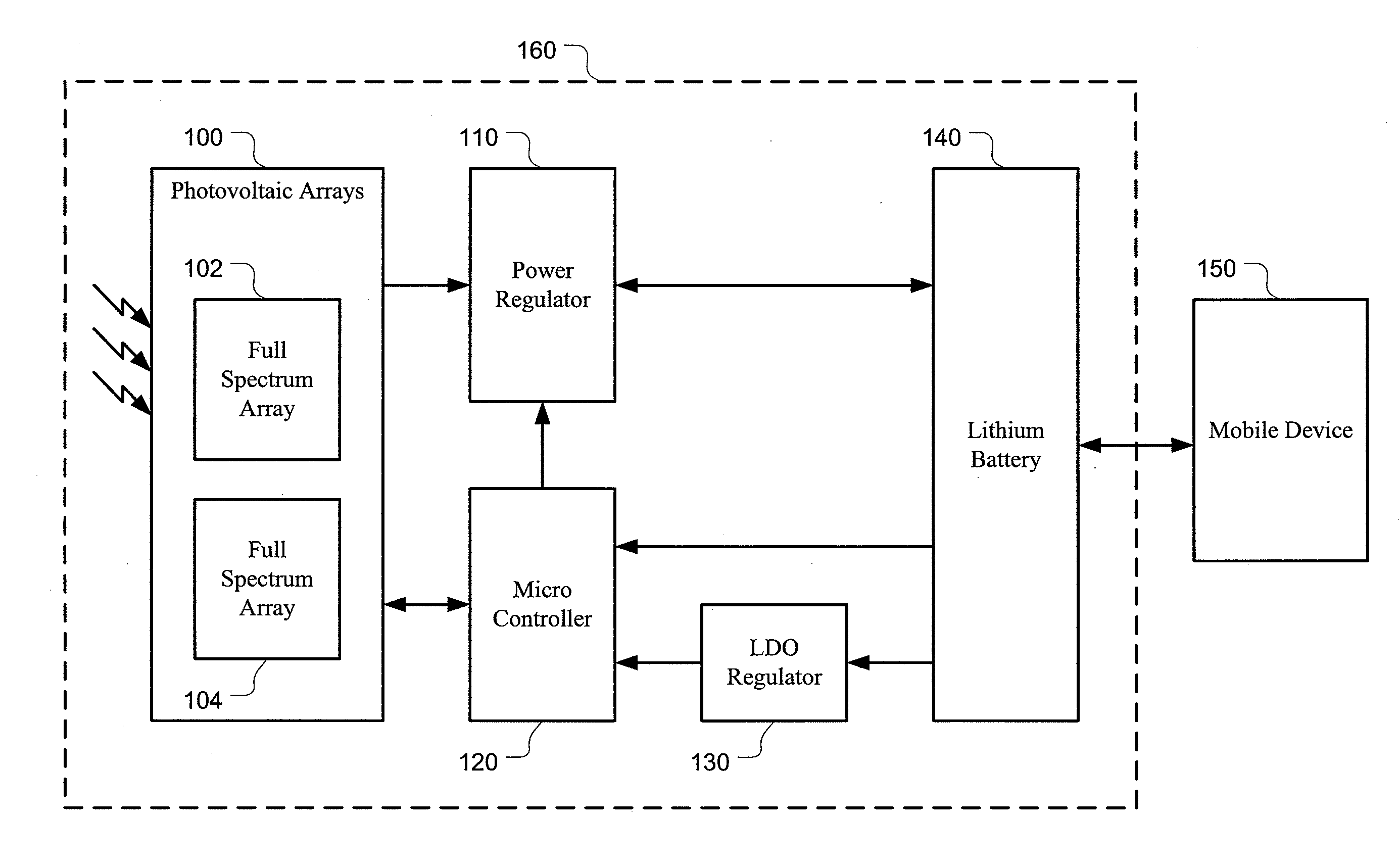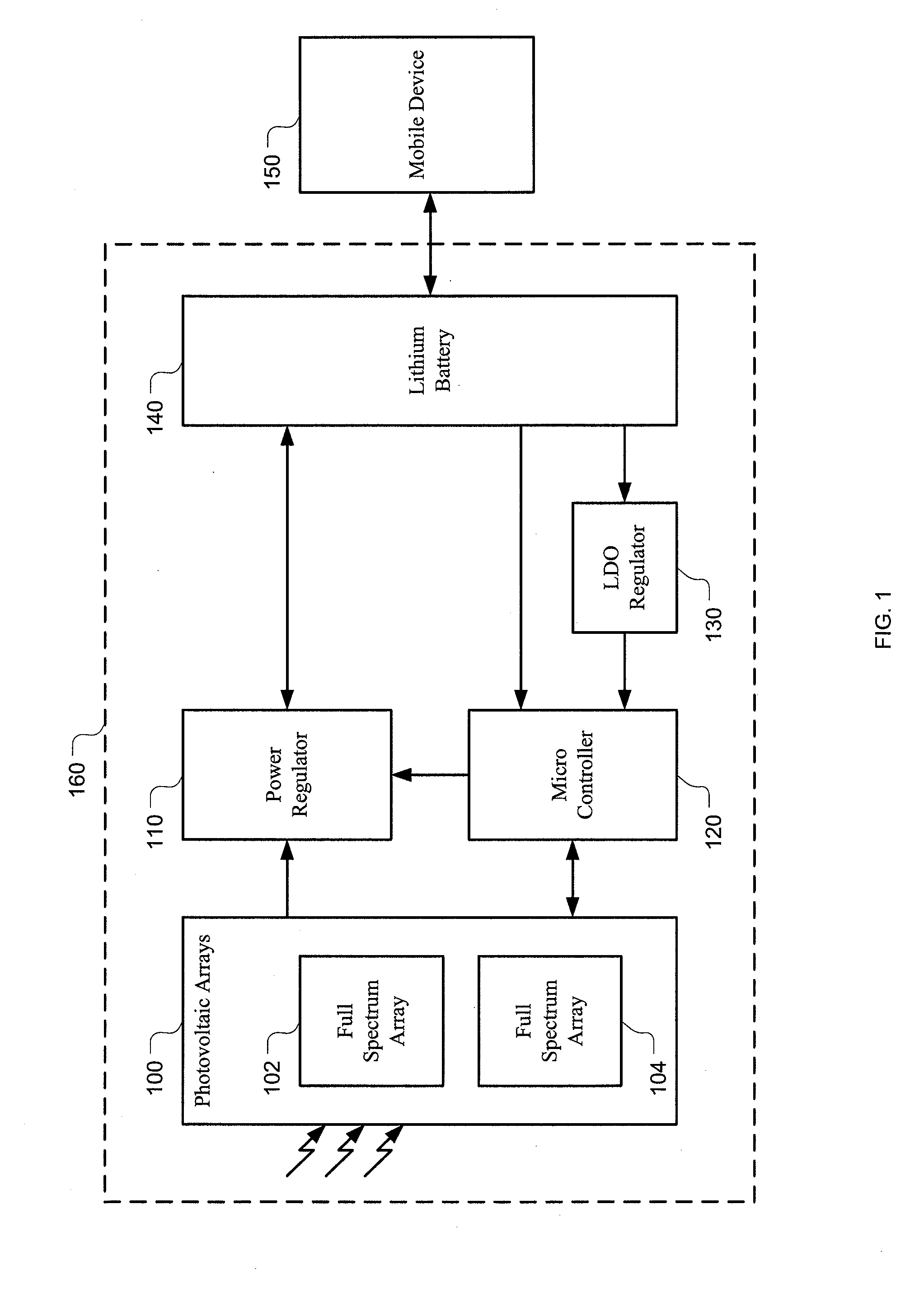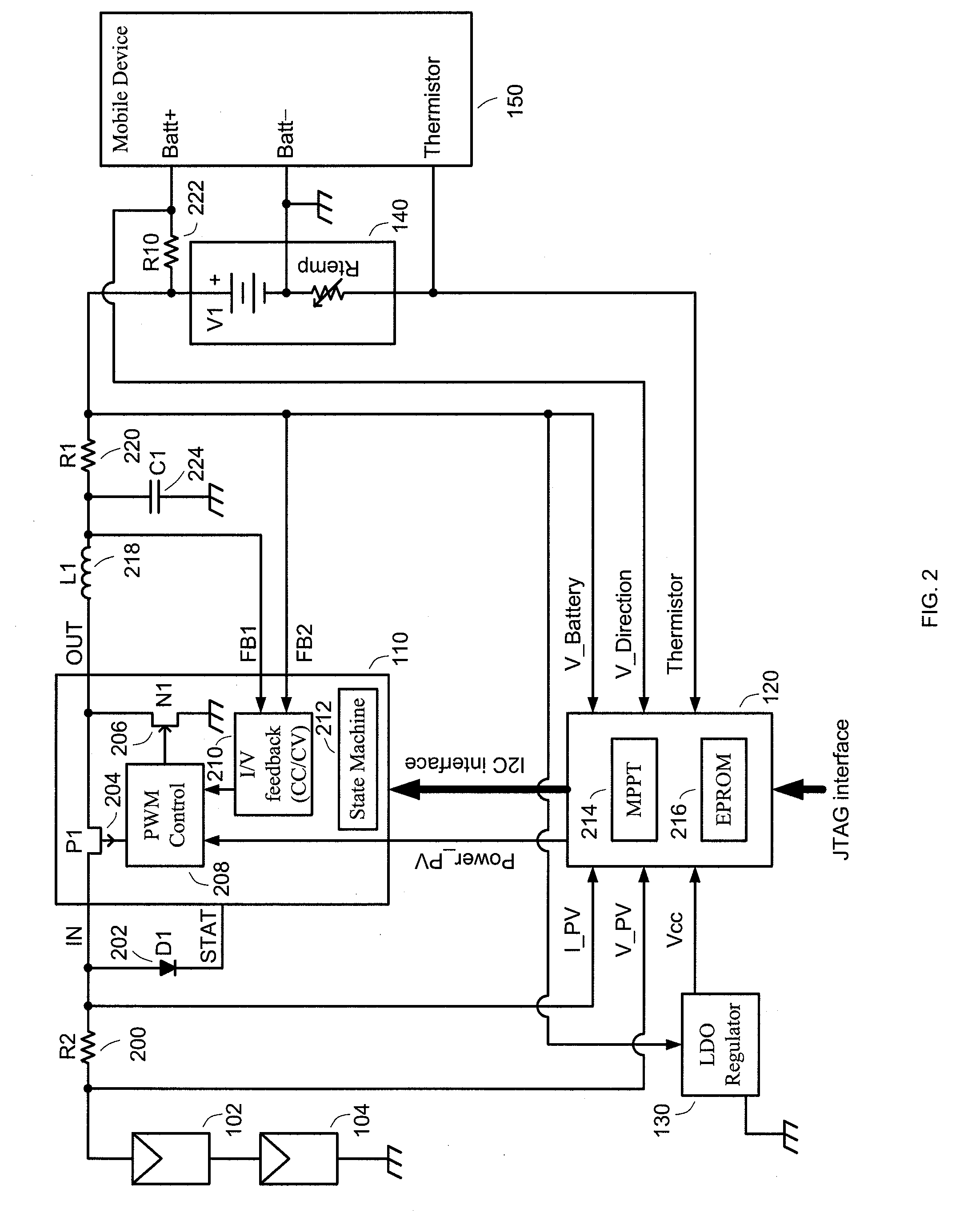Solar chargeable battery for portable devices
a solar energy and portable device technology, applied in the direction of secondary cell servicing/maintenance, electrochemical generators, transportation and packaging, etc., can solve the problems of inconvenient use, limited mobility of charging systems, and general inability of pv cells to provide a continuously stable energy source, so as to avoid redundancy or conflict
- Summary
- Abstract
- Description
- Claims
- Application Information
AI Technical Summary
Benefits of technology
Problems solved by technology
Method used
Image
Examples
Embodiment Construction
[0025]The present invention relates to a method and an apparatus for charging a battery using a variable power source such as solar energy or light. While the specification describes several example embodiments of the invention, it should be understood that the invention can be implemented in many ways and is not limited to the particular examples described below or to the particular manner in which any features of such examples are implemented.
[0026]As described above, PV cells can be used to convert solar energy or light into electrical energy for charging a battery. FIG. 1 is a block diagram of one embodiment of a solar chargeable battery system 160 comprising a PV array 100 with one or more PV cells 102, 104. The PV array 100 outputs a substantially DC power source at a voltage level and a current level that vary with lighting conditions. For example, the voltage and / or current provided by the PV array 100 varies greatly depending upon the density and the wavelength of available...
PUM
| Property | Measurement | Unit |
|---|---|---|
| voltage | aaaaa | aaaaa |
| voltage | aaaaa | aaaaa |
| thick | aaaaa | aaaaa |
Abstract
Description
Claims
Application Information
 Login to View More
Login to View More - R&D
- Intellectual Property
- Life Sciences
- Materials
- Tech Scout
- Unparalleled Data Quality
- Higher Quality Content
- 60% Fewer Hallucinations
Browse by: Latest US Patents, China's latest patents, Technical Efficacy Thesaurus, Application Domain, Technology Topic, Popular Technical Reports.
© 2025 PatSnap. All rights reserved.Legal|Privacy policy|Modern Slavery Act Transparency Statement|Sitemap|About US| Contact US: help@patsnap.com



